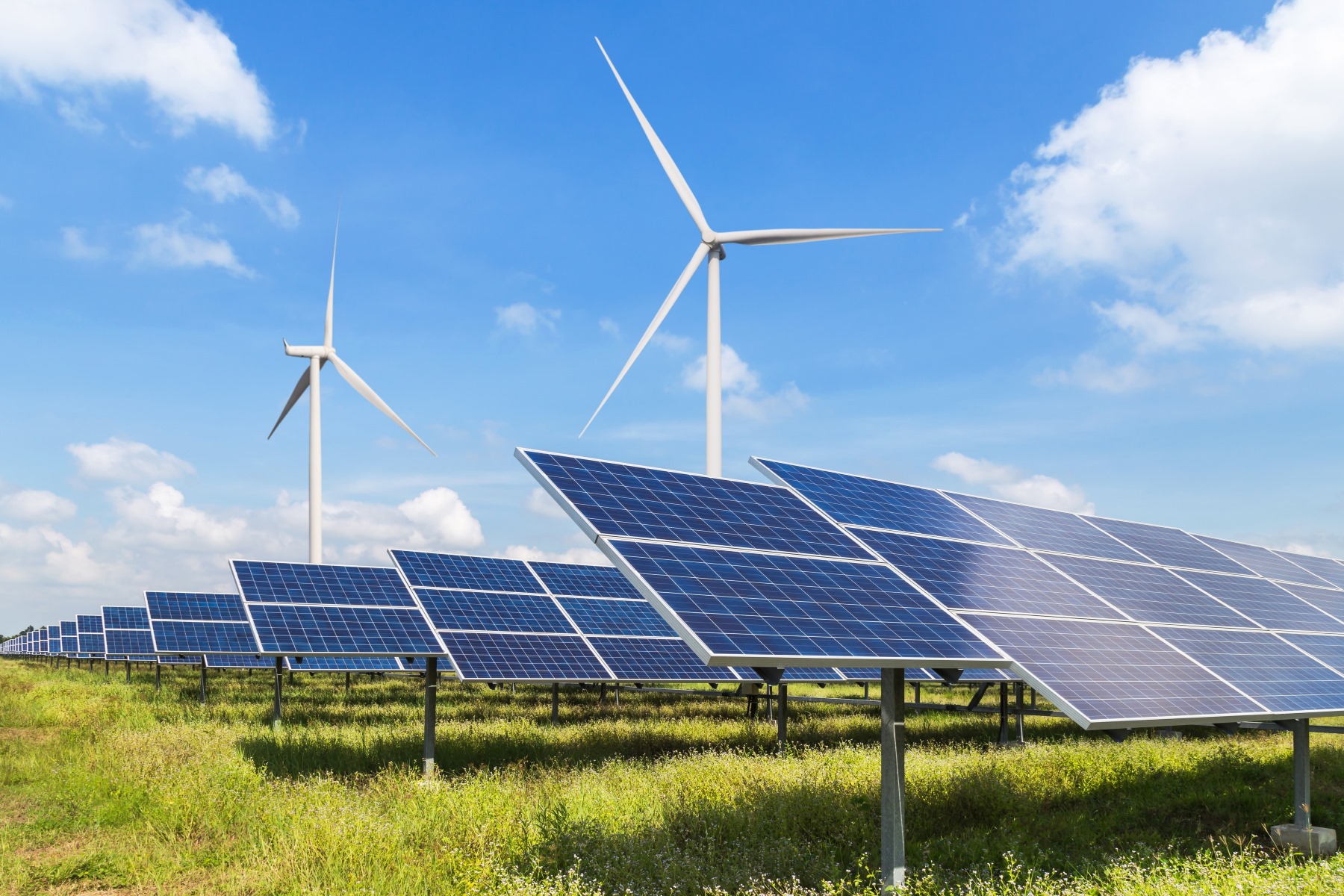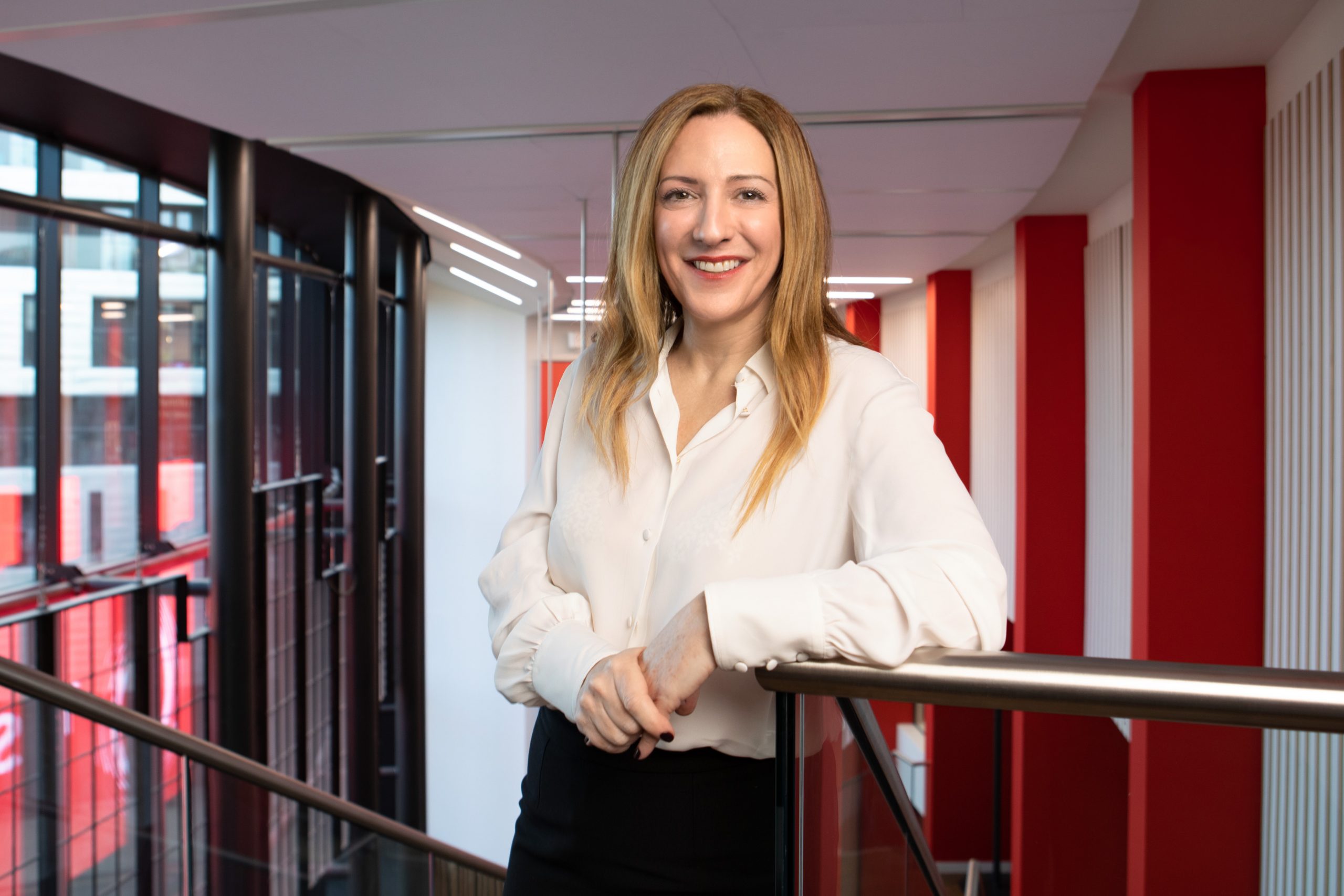Vodafone was one of many companies exhibiting at Defra’s E-Alliance COP26 ‘Tech for Climate Action’ event in Glasgow on Wednesday.
At the Vodafone stand, Steve Di Laudo, Client Director, Central Government, demonstrated an augmented reality model that brought to life how Internet of Things (IoT) tech could help business customers reduce their carbon emissions.
Vodafone’s Smart Building product, for example, monitors air quality, temperature, lighting and occupancy rate and gives building managers – in both the public and private sectors – the data they need to manage energy use more effectively.
“This proposition from Vodafone can actually reduce energy usage by up to 30%, so we’re very proud of it and we’re really pleased to be talking about it here,” Steve told Vodafone UK News.
Vodafone believes that using IoT and other technologies can help reduce customers’ emissions by 350 million tonnes by 2030.

Credits: Vodafone
Andy Dobinson, UK Business Development Lead for Vodafone IoT.nxt, a platform that integrates data from any legacy IT system onto one dashboard, said: “This technology gives managers the ability to make proactive business decisions based on real data rather than simply reacting to events as they happen.”
Some examples:
- Water companies are using sensors and Vodafone’s IoT network to spot leaks earlier and reduce water waste.
- Fleet managers are using telematics boxes in vehicles to monitor how they are driven, using all the data collected to improve fuel efficiency and route mapping, thereby reducing emissions and cutting costs.
- Hospitals could use a range of IoT sensors to monitor everything from patient health to medical equipment tracking.
- Industrial companies are using connected sensors to monitor machines for wear and tear, enabling predictive maintenance that reduces costs by nipping issues in the bud before they escalate.
- ‘Smart’ city states around the world are experimenting with connected sensors to measure and manage air quality, noise pollution, street lighting and traffic congestion.
Andy Murray, Vodafone Group’s Senior Environment Manager for Sustainable Business, said Vodafone was aiming to halve emissions produced by Vodafone’s suppliers by 2030, and that IoT would play an important role in achieving that target.
“I really hope that at COP26 there’s a realisation about the urgent need for action by governments, corporations and citizens. We have to shift from ‘make, use, throw away’ to ‘make, use, re-use, recycle’,” he concluded.
Exhibitors at the Defra event included companies from a wide range of sectors, including computing, software, telecoms, e-waste, and sustainability management, all committed to tackling climate change through the better use of technology.
“I would like to welcome Vodafone to the Defra E-Alliance COP26 event,” said Mattie Yeta, Defra’s Head of Sustainable IT.
“Vodafone has been a founding member of the E-Alliance when we sent it up back in 2018 and we’re really proud of our partnership with Vodafone and looking forward to developing even further technologies and innovations.”
The alliance comprises 300 companies exploring how technology can help tackle the effects of climate change.
Vodafone’s UK CEO, Ahmed Essam, will be attending the Defra event on Friday 5 November, talking on a panel about how innovative technology can accelerate action to combat climate change.
Stay up-to-date with the latest news from Vodafone by following us on Twitter and signing up for News Centre website notifications.




![Nicki-Lead_image[OPTIMISED]](https://www.vodafone.co.uk/newscentre/app/uploads/2023/10/Nicki-Lead_imageOPTIMISED.jpg)

![White smartphone with screen from green leaves[Adobe Stock]](https://www.vodafone.co.uk/newscentre/app/uploads/2024/04/White-smartphone-with-screen-from-green-leavesAdobe-Stock.jpg)

![Falling Dripping Water Drop[Adobe Stock] Falling Dripping Water Drop[Adobe Stock]](https://www.vodafone.co.uk/newscentre/app/uploads/2024/04/Falling-Dripping-Water-DropAdobe-Stock.jpg)
![1-happy woman with cleaning agent and phone[Adobe Stock] stock image of a woman using a smartphone while wearing rubber kitchen gloves and holding a spray bottle](https://www.vodafone.co.uk/newscentre/app/uploads/2024/04/1-happy-woman-with-cleaning-agent-and-phoneAdobe-Stock.jpg)